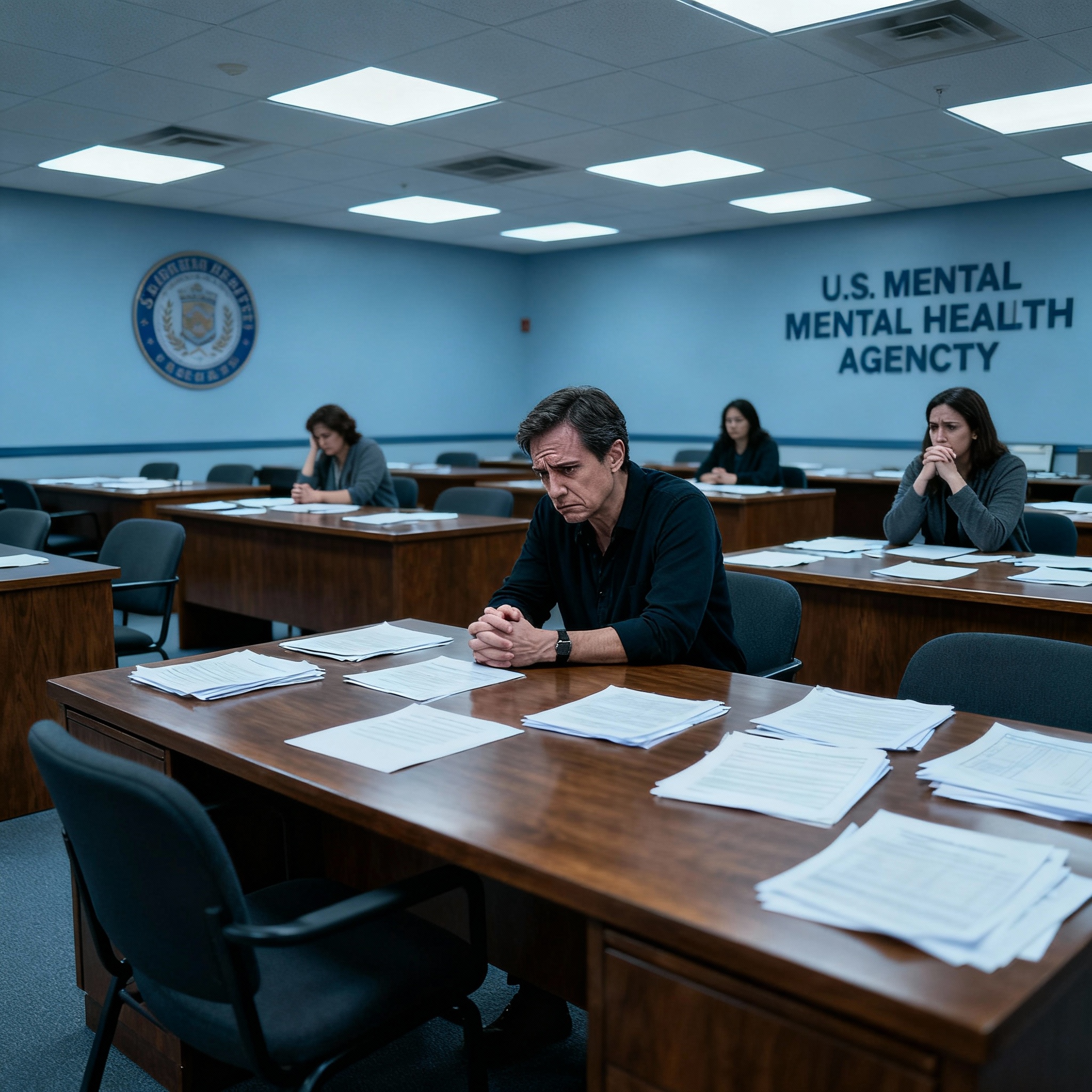In a stunning move during an ongoing government shutdown, the Trump administration has laid off over 100 employees at the primary US Mental Health Agency, the Substance Abuse and Mental Health Services Administration (SAMHSA). This action, part of a broader reduction-in-force across federal agencies, has sparked widespread concern among mental health experts, policymakers, and advocacy groups about the future of behavioral health and addiction treatment in the United States.
What Happened at the US Mental Health Agency?
On Friday night, staff at SAMHSA received notifications of job terminations as part of an expanded wave of federal layoffs. Sources within the US Mental Health Agency report both shock and confusion among employees, many of whom did not receive any clear rationale for their dismissal. NPR and others estimate that around 125 staff members were affected, dwindling the agency’s size to nearly half its original workforce.
SAMHSA oversees critical national programs such as the 988 suicide prevention hotline and billions of dollars in mental health and addiction grants. The agency, established in 1992 by bipartisan legislation, is seen as the backbone of American behavioral health. The cuts have alarmed practitioners and experts who fear for the integrity and reach of essential services.
The Impact of Mass Layoffs
The reduction of personnel at the US Mental Health Agency comes at a time when mental health needs and substance abuse rates are at historic highs. SAMHSA’s resources fund state programs, community initiatives, and crisis response—any disruption risks setting back years of progress in mental health advocacy and overdose prevention.
Staff and observers highlight the importance of retaining experienced professionals whose daily efforts support vulnerable communities. Many describe the overall sentiment as one of uncertainty and fear for the continuity of life-saving care. The Department of Health and Human Services (HHS) has attributed the layoffs to budget battles and the ongoing shutdown, noting they may be forced to eliminate additional positions if funding is not restored.
What This Means for Mental Health in the US
The layoffs at the US Mental Health Agency threaten to undermine the nation’s response to suicide, addiction, and other behavioral health challenges. Advocates worry about the immediate loss of expertise and the potential decrease of grant-funded services in local communities. National organizations point out that SAMHSA’s work touches the lives of millions of Americans—including youth, adults, and marginalized populations struggling to access care.
Reductions in staff and funding could result in fewer resources for mental health crisis intervention, substance abuse prevention, and public health campaigns. Many stakeholders are now calling for urgent bi-partisan efforts to stabilize the US Mental Health Agency and guarantee consistent access to treatment, especially for high-risk groups.
The Path Forward
Experts agree that mental health and addiction services should remain above political disputes, noting the crucial role SAMHSA plays in the national safety net. There is growing pressure on lawmakers to reinstate funding and positions at the US Mental Health Agency, restore confidence among affected communities, and prioritize American mental health as part of recovery efforts.
As the nation grapples with the aftermath of these personnel cuts, advocacy groups urge families and healthcare providers to stay informed and connected to available resources. Support for the agency’s mission is critical to ensure vulnerable populations are not left behind.
Frequently Asked Questions (FAQs)
What is the role of the US Mental Health Agency?
The US Mental Health Agency, SAMHSA, oversees national mental health and substance abuse programs, crisis response, and addiction services.
How many jobs were cut?
Over 100 employees were laid off, reducing the agency’s workforce to nearly half compared to previous years.
Why did the layoffs happen?
The layoffs resulted from budget battles and the ongoing government shutdown, according to HHS.
How will this affect mental health services?
The cuts threaten access to grant programs, crisis hotlines, and community-based care for millions of Americans.






